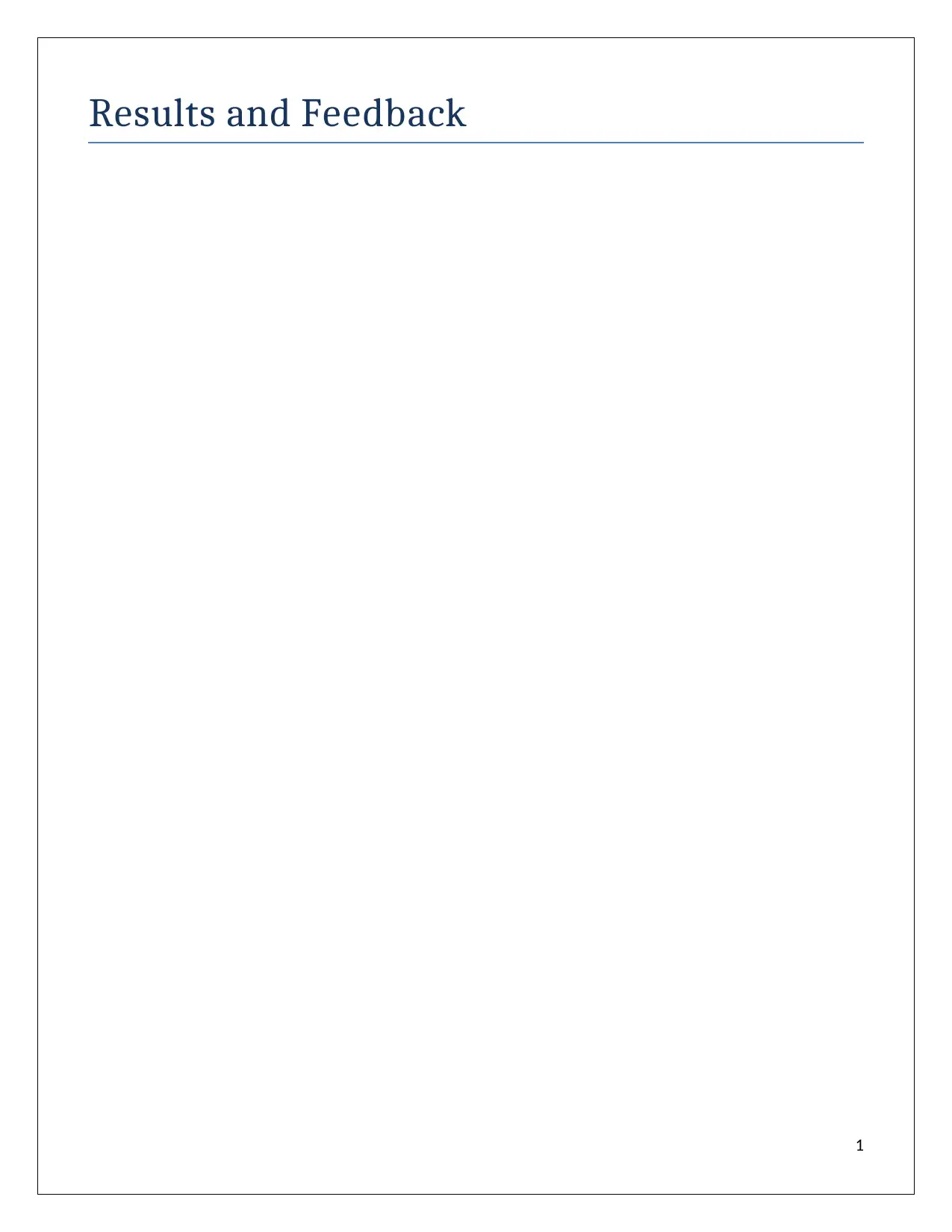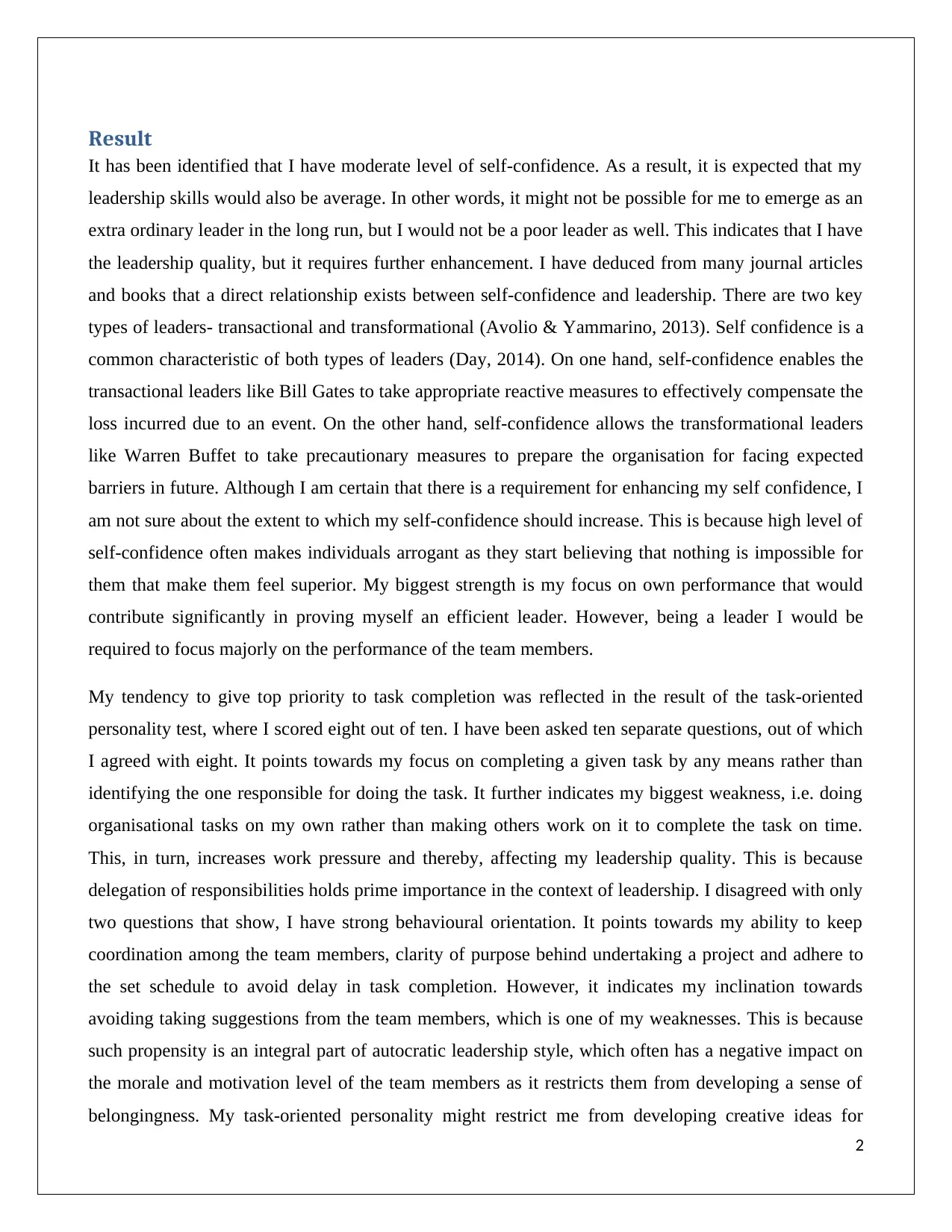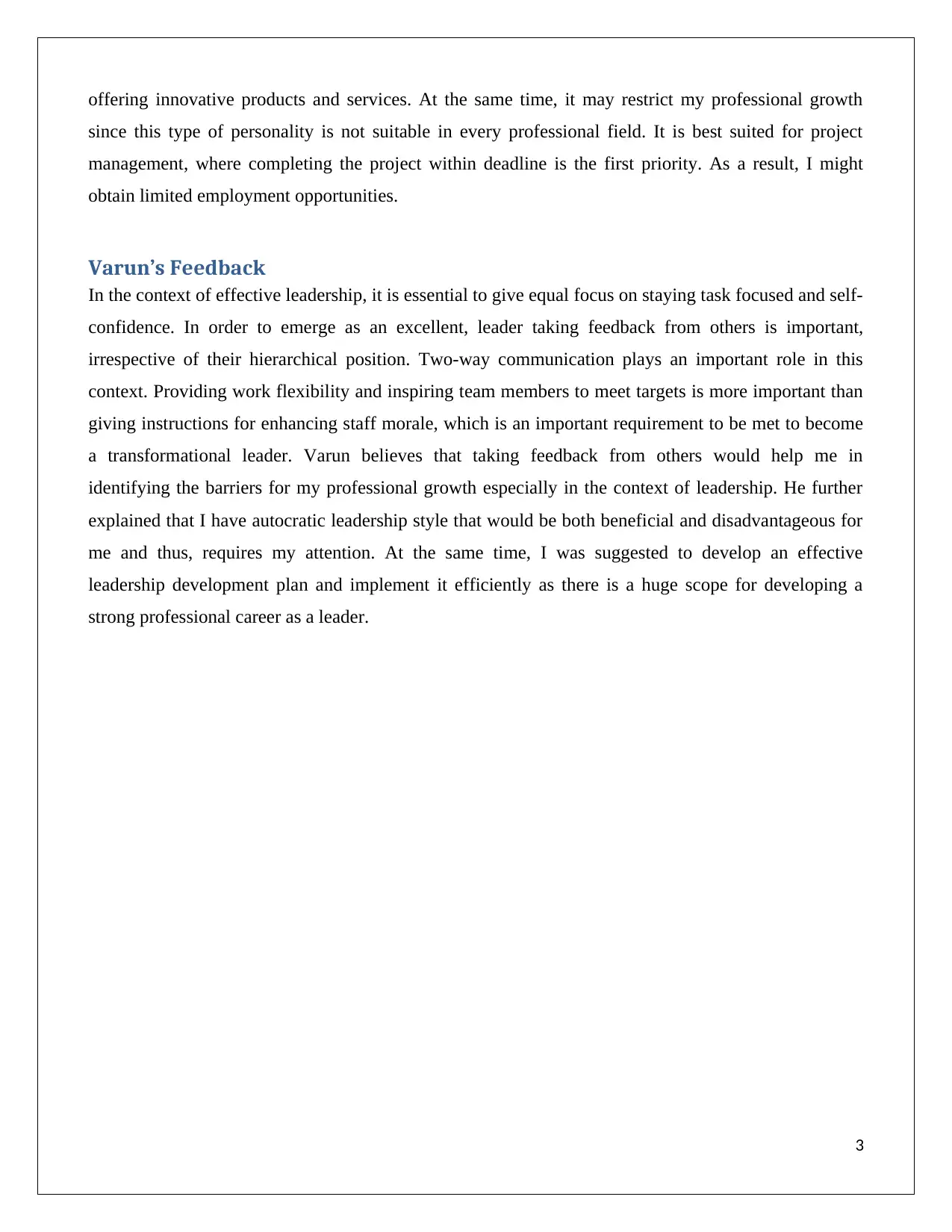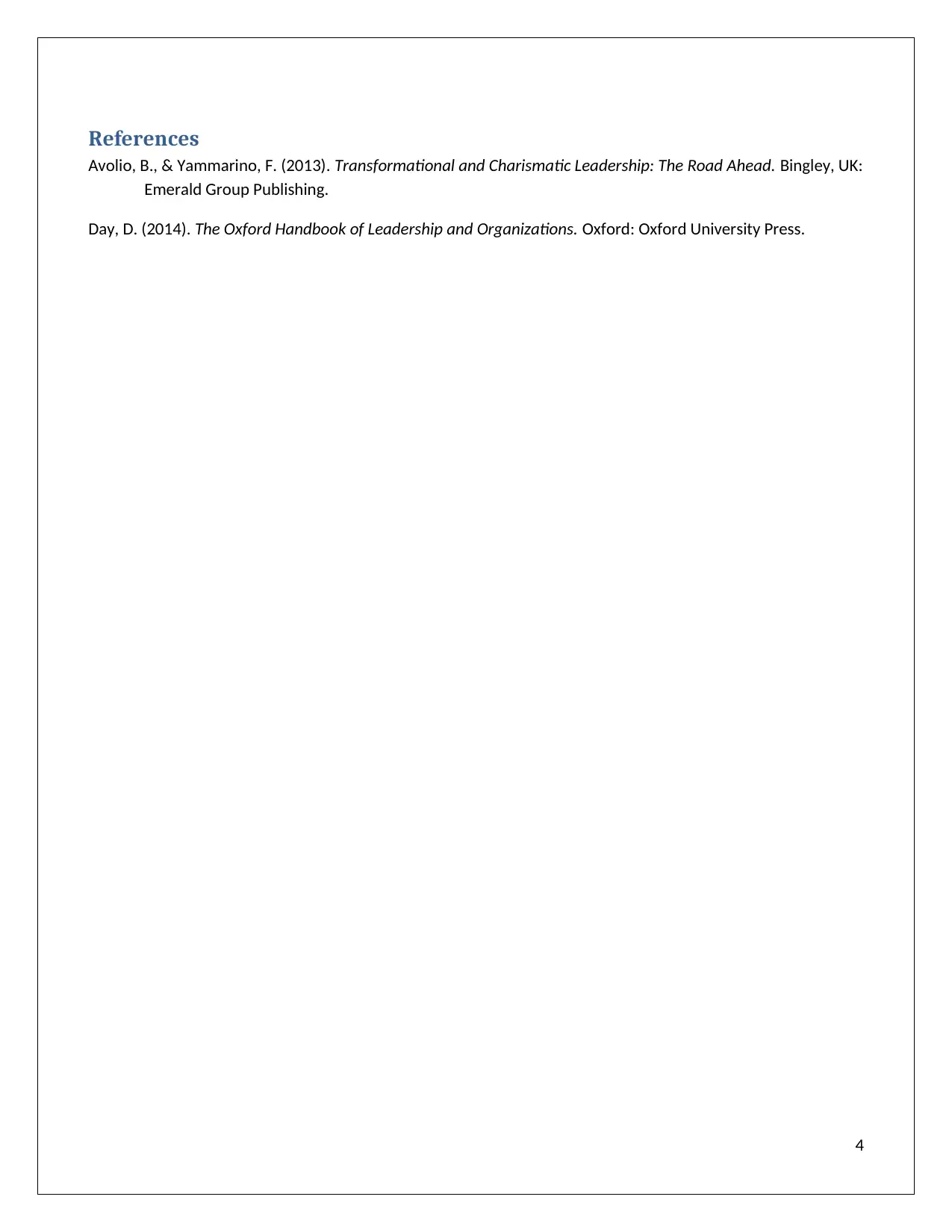Leadership Skills Assessment: Self-Confidence and Feedback Analysis
VerifiedAdded on 2020/02/24
|4
|826
|443
Homework Assignment
AI Summary
This assignment analyzes the student's leadership skills based on self-assessment and feedback received. The student identifies a moderate level of self-confidence, which is linked to average leadership skills. The analysis explores the relationship between self-confidence and leadership styles, differentiating between transactional and transformational leadership. Strengths include task focus, while weaknesses involve a tendency towards autocratic leadership and a reluctance to delegate. Feedback from a peer, Varun, emphasizes the importance of balancing task focus with self-confidence, seeking feedback, and developing a leadership development plan. The student's task-oriented personality is discussed in relation to its suitability for different professional fields. The assignment concludes with a call for developing leadership skills and addressing the identified weaknesses to enhance professional growth.
1 out of 4











![[object Object]](/_next/static/media/star-bottom.7253800d.svg)